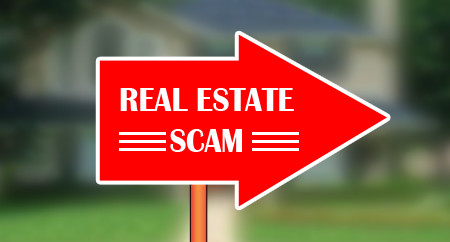Real Estate Scams: How to Protect Yourself in Nigeria
The Nigerian real estate market has seen remarkable growth in recent years, attracting both local and foreign investors. However, with this expansion comes the unfortunate rise in real estate scams. Fraudsters often exploit unsuspecting buyers and renters, leading to significant financial losses and emotional distress. This post aims to highlight common real estate scams in Nigeria and offer practical tips on how to protect yourself.
Common Types of Real Estate Scams
- Fake Property Listings: Scammers create fake online listings for properties that do not exist or are not for sale. They often use attractive photos and enticing descriptions to lure potential buyers or renters.
- Phantom Land Sales: In this scam, con artists sell land that they do not own or have no right to sell. Buyers may receive forged documents, making it difficult to verify ownership.
- Rental Scams: These involve fraudsters posing as landlords to collect deposits and rent for properties they do not own. They often ask for payment before allowing potential tenants to view the property.
- Title Fraud: This occurs when someone forges ownership documents to sell property they do not own. Unsuspecting buyers may end up purchasing a property that legally belongs to someone else.
- Under-Construction Scams: Scammers may sell properties that are still under construction or not even started, often promising unrealistic completion dates and returns on investment.
- Investment Scams: These involve schemes that promise high returns for investing in real estate projects, often with little to no risk. Such schemes can turn out to be Ponzi schemes, leaving investors with significant losses.
How to Protect Yourself
- Conduct Thorough Research: Always research the property and its ownership. Verify the legitimacy of the seller or landlord by checking land titles and ownership documents. Utilize online resources and consult local land registries to confirm ownership.
- Use Reputable Real Estate Agents: Engage with established and reputable real estate agents or agencies. Look for agents with positive reviews and a solid track record. A good agent will help you navigate the market and avoid potential scams.
- Visit the Property in Person: Never make a payment without visiting the property first. A personal visit allows you to assess the condition of the property, confirm its existence, and interact directly with the seller or landlord.
- Verify Documents: Ensure that all documents related to the property are legitimate. Look for the Certificate of Occupancy (C of O), title deeds, and any other relevant paperwork. If in doubt, consult a real estate lawyer for assistance in verifying these documents.
- Avoid Unusual Payment Methods: Be cautious if asked to make payments via unconventional methods, such as wire transfers or cash payments. Always opt for secure payment methods and ensure you have a written agreement outlining the terms of the transaction.
- Trust Your Instincts: If something feels off about a property deal, trust your instincts. Be wary of deals that seem too good to be true, as they often are. If a seller pressures you to make a quick decision, take a step back.
- Engage a Lawyer: Before finalizing any property transaction, consider hiring a lawyer who specializes in real estate. They can help review contracts, confirm property titles, and ensure that all legal aspects of the transaction are sound.
- Network with Others: Join local real estate forums or community groups where you can share experiences and learn from others. Networking with other property owners and investors can provide insights into potential scams and trusted contacts in the industry.
- Report Suspicious Activities: If you encounter a scam or suspicious activity, report it to the appropriate authorities, such as the Economic and Financial Crimes Commission (EFCC) or the police. Your report could help prevent others from falling victim to similar scams.
Conclusion
The Nigerian real estate market offers numerous opportunities, but it is essential to remain vigilant against scams that could jeopardize your investments. By conducting thorough research, using reputable agents, verifying documents, and trusting your instincts, you can significantly reduce the risk of falling victim to fraud.
While scams can be disheartening, knowledge is your best defense. Stay informed about the types of scams prevalent in the market and equip yourself with the tools necessary to make sound real estate decisions. Remember, your diligence today can protect you from significant financial losses tomorrow. Whether you’re buying, selling, or renting property, taking these precautionary steps will ensure a safer and more secure real estate experience in Nigeria.

